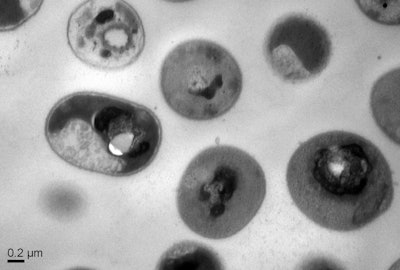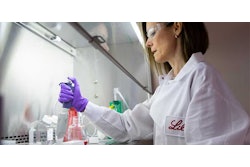
A recent New Atlas article discussed a new synthetic polymer developed to take on the multidrug-resistant bacteria. A team of scientists at the Institute of Bioengineering and Nanotechnology worked with IBM Research to create the synthetic molecule that is both non-toxic and biodegradable.
The molecules, or the long-winded official name guanidinium-functionalized polycarbonates, are positively charged polymers that bind to the negative charge of the microbial membranes of certain bacteria cells. Once inside the cell, the polymers trigger the solidification of proteins and DNA in the cell and kill the bacteria. In mouse trials, the molecule successfully eradicated five different superbugs commonly found in hospitals.
The next step is to establish a specific antimicrobial treatment for clinical tests on humans.






















